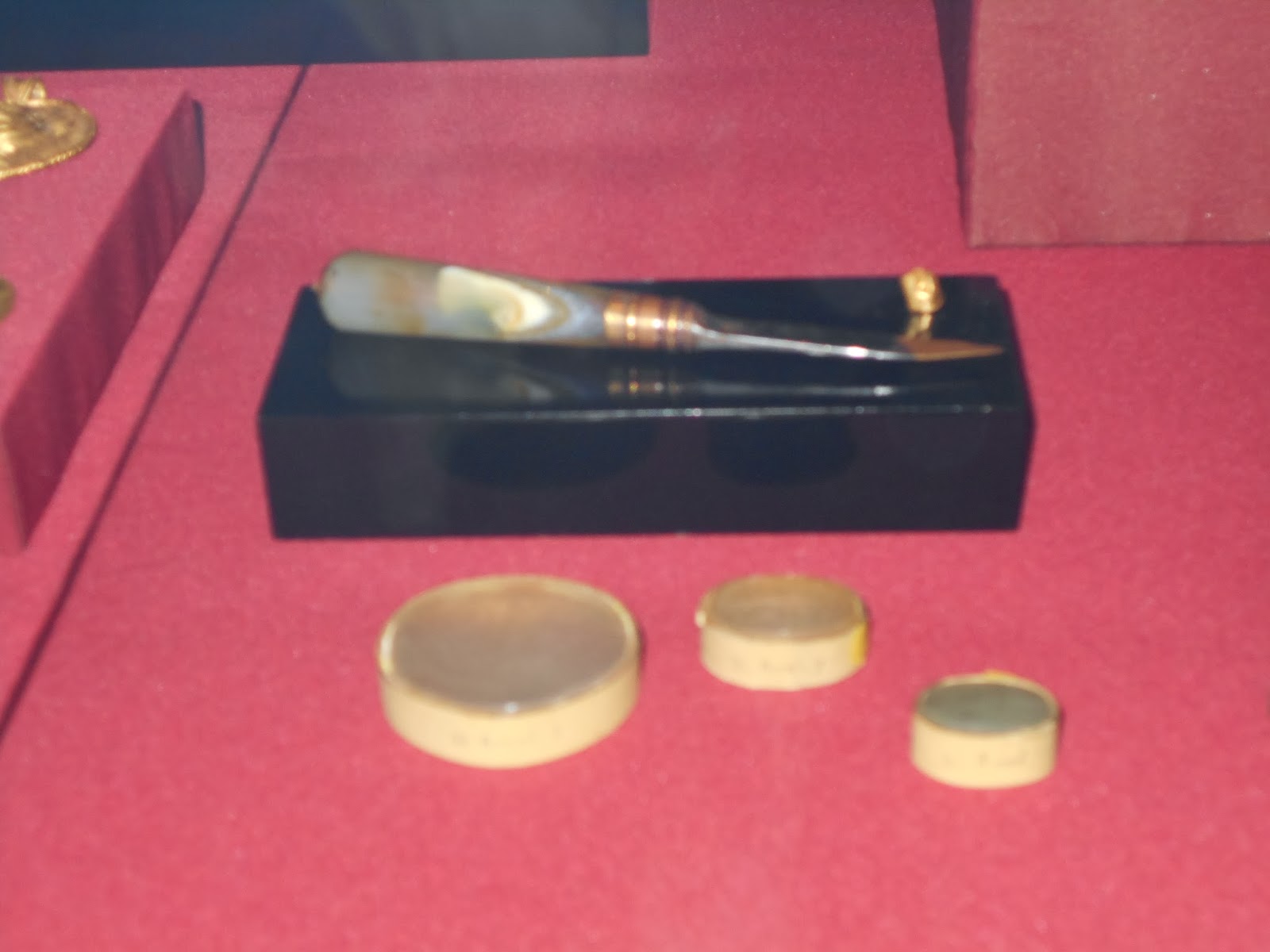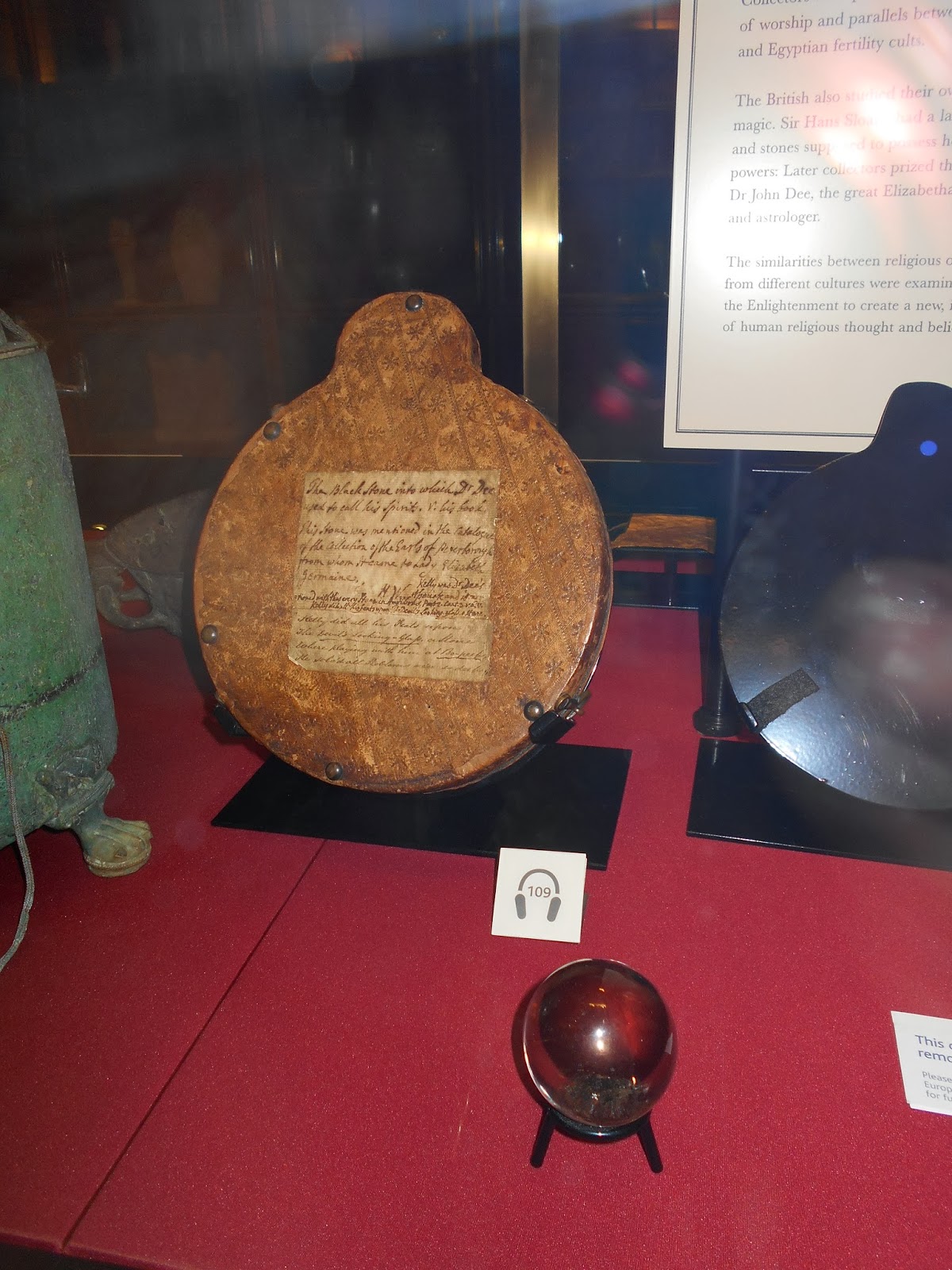In the exploration of what nature is, one realizes that there are certain things that cannot be done within the laws of nature. Lead cannot be turned into gold; the dead cannot be brought back to life; death cannot be forestalled indefinitely. The recognition of these limitations has not stopped people from trying to find ways around them, however, in both real life dealings and the imaginative space of literature. As science develops and expands, the rebellious individual may be confined more and more to literature's imaginative space, but that does not stop a fascination with trying to find ways to outsmart and overcome nature.
 |
An alchemist's pen, colored with gold at the tip to fool people
into thinking that the metal had actually been transformed. |
During the Renaissance, alchemy was still considered a respectable science, influencing the modern sciences of chemistry, medicine, and even physics. The experimental nature of alchemy, meant to find the elixir of life or a means to transform base metals into gold, influenced the development of later experimental physical sciences. The mystical nature of alchemy also tied it to spiritual practices in Judaism, Islam, Hinduism, and Christianity, contributing to a relation between alchemy and the occult. Well-known, reputable figures in Elizabethan England were known as alchemists and often also as occultists, as they sought answers to the questions that nature seemed to leave unanswered.
 |
Paraphernalia used by John Dee to conjure
spirits and angels. |
One such figure was John Dee. Born in London in 1527 to a courtier in Henry VIII's court, Dee would later serve as court astrologer and magician to both Queen Mary and Queen Elizabeth (Cannon). He was also versed in the studies of geography and navigation, having published only one book in his lifetime about the "perfect arte of navigation" (Downs). Despite these more practical pursuits, his reputation as a cabalist and occultist shadowed his reputation for centuries. As the possessions of Dee's that are now housed in the British Museum suggest, that reputation was not unfounded. Dee used such objects to conjure spirits and contact divine beings, including angels, in his attempts to learn the secrets of the universe. While such pursuits may have led to Dee dying impoverished and in infamy under the charge of sorcery, he certainly demonstrated the desire to transcend nature that continued into the Romantic period.
As alchemy was abandoned for chemistry and modern science continued to develop and change, the medium through which one could express such desires to transcend nature also had to change. The written word became that new medium. Facing only the limits of imagination, authors such as Mary Shelley could propose scenarios in which nature was actually transcended. For Shelley, her novel
Frankenstein offered the space to imagine what would happen if man had the power to overcome death. Shelley's protagonist, Victor Frankenstein, begins his scientific education with the works of Cornelius Agrippa, Albertus Magnus, and Paracelsus, eagerly accepting "the dreams of forgotten alchemists" after being unable to content himself with "the results promised by the modern professors of natural science" (Shelley 49). Following his education under M. Waldman, Victor returns to the fold of modern science, but the promises of his previous alchemist teachers maintain a hold on him, leading him to seek a way to overcome death by reanimating life. In this manner, Shelley blends aspects of the science of ages past and contemporary science, as Victor seeks the "elixir of life" in the form of electricity. Thus, Shelley's thought experiment in
Frankenstein alludes to a desire to return to the unachieved "promised impossibilities" through contemporary scientific means, suggesting that the human desire to transcend nature may never actually be quelled by scientific limitations (50). The practice may change, forced to move out of the laboratories and into the pages of a book, but the human desire for more knowledge, more control, and more power never ceases.


No comments:
Post a Comment